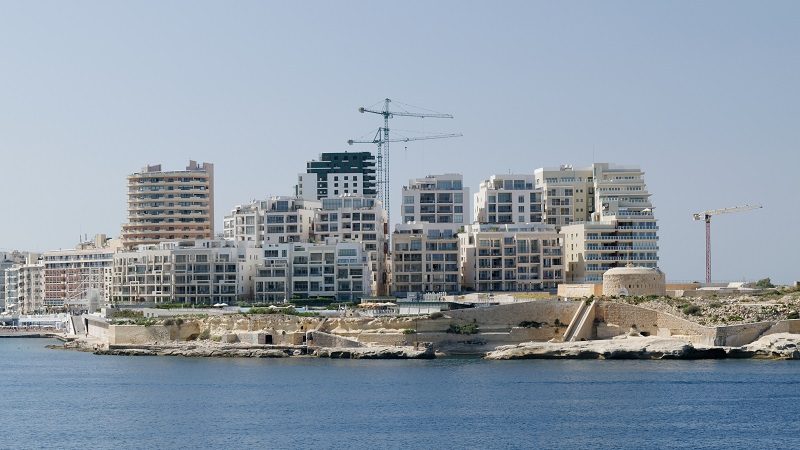Muscat’s metropolitan dream frequently emerges in statements expressing his desire to make Malta a ‘Singapore in the Mediterranean’. Despite what may seem like two very different nations, the similarities between the two densely populated ex-colonies are striking.
Singapore is a nation roughly double Malta’s size, and it is home to 10 times Malta’s population. Both countries gained their independence from Britain within one year of each other. Singaporeans don’t just drive on the left, but they also share the same legislative system: one legislative chamber with an Executive that sits in parliament, based on the Westminster model.
Like Malta, Singapore lacks natural resources, but it is a leading financial centre and boasts one of the top casino gambling markets. It’s ironic that Muscat’s dream was what the Nationalist Party created, bringing Malta closer to Singapore by establishing Malta’s financial services and igaming industries although their reputation has now suffered a blow as a result of corruption scandals involving the top rank of the Labour government.
Just like these industries became the backbone of Malta’s economy, Singapore attained First World status rapidly after its independence as a result of excellence in these sectors (manufacturing, although substantial, is significantly smaller). It is now the third most expensive city to live in globally.
Unlike Malta, it is one of the least corrupt countries on Earth and it is known for its meritocracy, which helps strengthen its economy.
Apart from the mutual economic models – bar corruption – there is another cultural similarity that emerges in its politics: a tendency towards autocracy.
Lee Kuan Yew was Singapore’s president for 30 years and is credited with bestowing the city-state with its prosperity. As the leader of the People’s Action Party (PAP), he made the party so popular that it has won every election for the past 50 years. Its majority leaves just 9 out of 91 seats for the two major Opposition parties, one of which has no parliamentary representation.
Singapore’s status as a democracy is contested. The immense popularity of the incumbent is not as ‘fair and square’ as it purports to be. Despite having open elections, there are deliberate flaws built into the system that make competing against the PAP financially impossible, due to the relative lack of resources.
Besides the lack of an independent electoral commission, the Prime Minister’s Office redraws the electoral boundaries without any transparency. This allows for sufficient gerrymandering, such that despite attaining 60% of the vote the PAP was awarded 90% of the seats.
Such power is exerted in the courts and the PAP has even enacted legislation to regulate political and media activities, often undermining opposition. Its Sedition Act encourages self-censorship of journalists, and those who step out of line are faced with exorbitant fines when found guilty of defamation, to the point of bankruptcy.
Unlike South Korea, which has a vibrant civil society presence, activist groups are stifled in Singapore. Universities, including student groups, discourage or even ban the discussion of political parties. Academic debate rarely breaches the official government line.
British philosopher and political economist John Stuart Mill in his classic ‘On Liberty’ discussed benevolent dictatorships as a stepping stone towards fully fledged democracies. The former, he argued, can be used to boost developing countries’ infrastructure, economies and education. Lee Kuan Yew is perhaps the most famous of the benevolent dictators who propelled Singapore forward.
In Malta, Mintoff (who was also fond of gerrymandering) ruled with a strong hand to propel the country forward. Yet his ‘benevolence’ came with a violent suppression of dissent.
Malta seems to be moving towards the same Singaporean model of autocracy. The only guarantee we have, beside the EU, is the European Charter of Human Rights and its respective court in Strasbourg. Nonetheless, the Labour Party is garnering unprecedented support in polls, soon able to unilaterally change the Constitution.
The policies enacted by the PAP in Singapore are reflected in the Labour Party’s narratives when faced with dissent. Recently, the government turned down the opportunity to protect journalists from the threat of SLAPP lawsuits saying amendments proposed by the Opposition on the new Media Bill ran counter to European law. The European Commission on Wednesday contradicted the Maltese government’s stand.
Labour’s unchecked mantra has been their surplus. But while Singapore remains an AAA economy even after a generation, Labour has been in power for five years hurriedly selling off State assets and citizenship. A long-term plan incorporating sustainable development remains a distant dream.
In Singapore, an electoral change to accommodate minority representation has similarly discriminated against opposition parties. In this light, Julia Farrugia Portelli’s democracy committee, set up without any consultation with the Opposition and filled with known Labour supporters, seriously raises eyebrows on its true intentions.
The weakness in our democractic system stems from the fact that when Malta accepted democracy and European values, there was no attempt to secure our institutions to prevent a populist autocracy.
The Labour Party in government mobilises its hate groups to attack activists, journalists and Opposition and foreign MEPs, branding them traitors set to destroy Malta’s image. Incitement to violence, especially when rubber-stamped by the government, poses a dire threat to citizens exercising their basic rights.
Elections are only a part of democracies, and even these can be manipulated. When European values are trashed à la Jason Micallef, chairman of V18, or Labour MPs Rosianne Cutajar and Glenn Bedingfield without any repercussions, Malta is closer to being a Singapore in the Mediterranean than most think.












